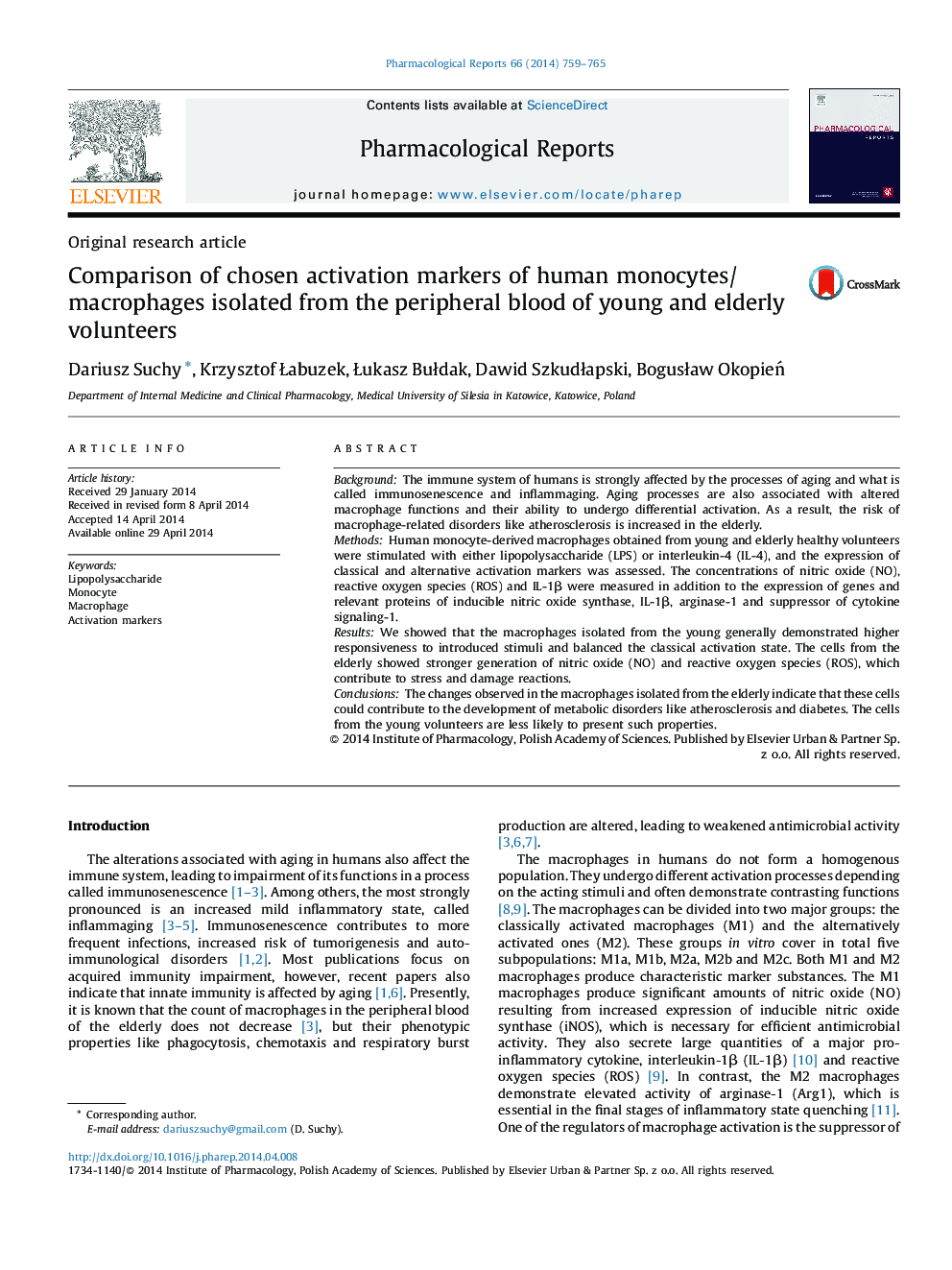| Article ID | Journal | Published Year | Pages | File Type |
|---|---|---|---|---|
| 2010897 | Pharmacological Reports | 2014 | 7 Pages |
BackgroundThe immune system of humans is strongly affected by the processes of aging and what is called immunosenescence and inflammaging. Aging processes are also associated with altered macrophage functions and their ability to undergo differential activation. As a result, the risk of macrophage-related disorders like atherosclerosis is increased in the elderly.MethodsHuman monocyte-derived macrophages obtained from young and elderly healthy volunteers were stimulated with either lipopolysaccharide (LPS) or interleukin-4 (IL-4), and the expression of classical and alternative activation markers was assessed. The concentrations of nitric oxide (NO), reactive oxygen species (ROS) and IL-1β were measured in addition to the expression of genes and relevant proteins of inducible nitric oxide synthase, IL-1β, arginase-1 and suppressor of cytokine signaling-1.ResultsWe showed that the macrophages isolated from the young generally demonstrated higher responsiveness to introduced stimuli and balanced the classical activation state. The cells from the elderly showed stronger generation of nitric oxide (NO) and reactive oxygen species (ROS), which contribute to stress and damage reactions.ConclusionsThe changes observed in the macrophages isolated from the elderly indicate that these cells could contribute to the development of metabolic disorders like atherosclerosis and diabetes. The cells from the young volunteers are less likely to present such properties.
